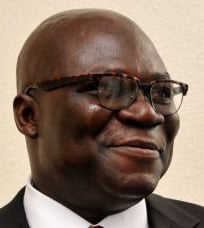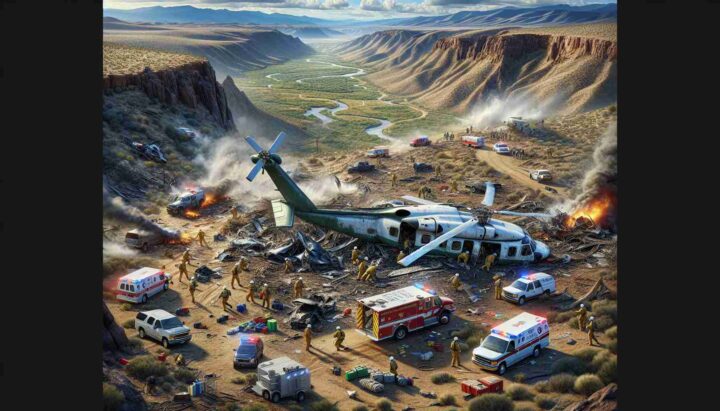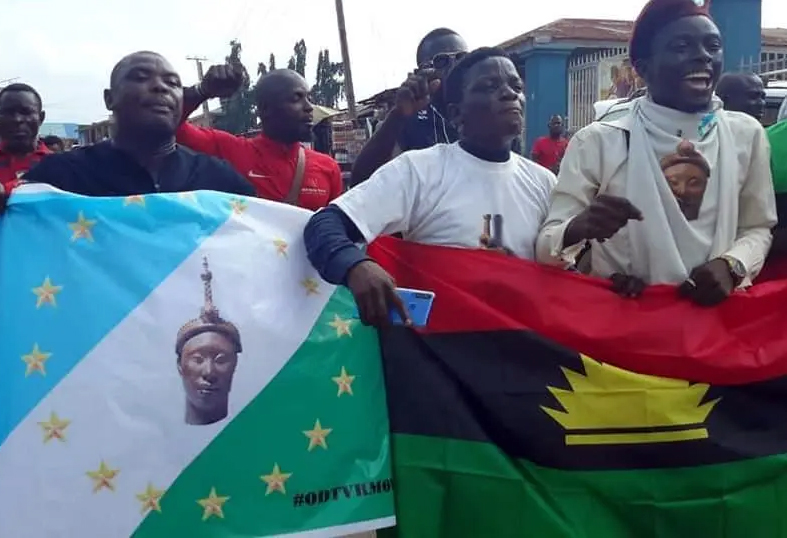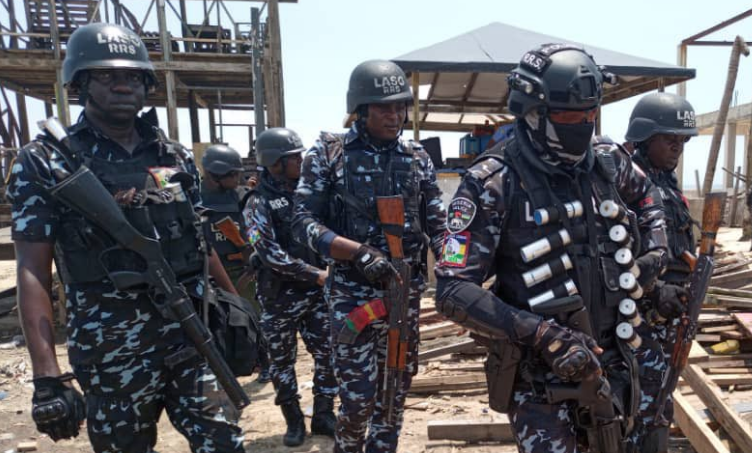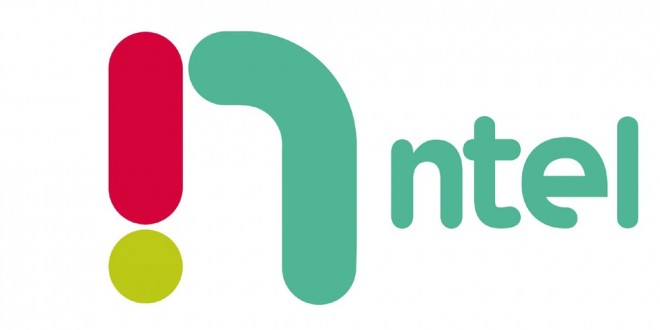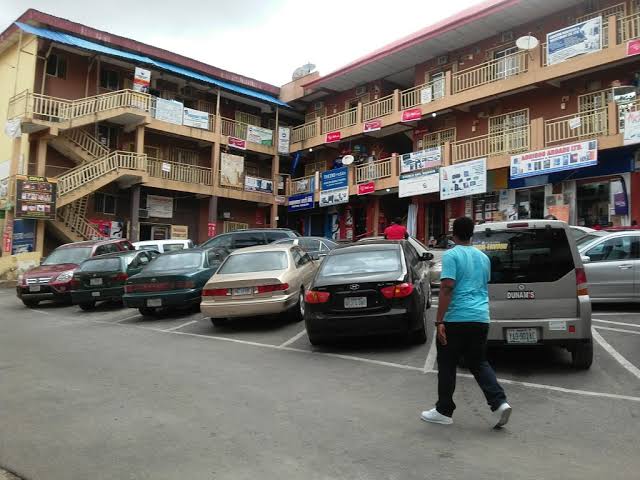Media Vita In Morte Sumus (In the midst of life we are in death.) This is a Gregorian chant that I often recall whenever there is an accident, a sudden, shocking abbreviation of life in the midst of hope and promise, a most tragic reminder of man’s mortality. Life as either a chemical or biological process must come to an end when it will, but it is the time and manner of it that leaves a lasting imprint on our memory. The tragic death of the President of Iran, Ebrahim Raisi (63), his foreign minister, Hossein Amirabdollahian (60) and seven others in a helicopter crash on Sunday evokes these thoughts afresh, as well as frightening memories.
Nigeria was thrown into shock in February this year when the tragic news was reported that Herbert Wigwe, group managing director and CEO of Access Holdings had died in a helicopter crash in the United States along with his wife, Chizoba, his 29-year-old son, Chizzy and his lawyer, Mr. Abimbola Ogunbanjo on their way to the Super Bowl in Las Vegas. The quartet had a great future ahead of them. Wigwe had just completed a university, the Wigwe University in his home town of Isiokpo, Rivers state, through which he planned to raise educational standards and provide opportunities and quality. He and Ogunbanjo were full of life. The death of three members of a family in one tragic accident was beyond comprehension. Nigerians and the international community mourned. The week before his death, I received a phone call from Herbert, sharing his views about a subject we had discussed on The Morning Show. He was a kind, affable gentleman, completely without airs. I know many people in high places who are just full of hydrogen, with blown-up egos. Not Wigwe.
“Reuben, I am travelling, but when I get back next Wednesday, I will call you”, he had said. He did not return. I was at a wedding party when news of the accident broke. It sounded like a fairy-tale but soon it was confirmed. Jesus! I was supposed to leave the wedding party and rush to a birthday party. I could not bring myself to go to that other party. I checked my phone. The call from Wigwe was still on my call log. How can somebody that spoke with me just a few days ago, die like that?”, I asked. There was an outpouring of tributes from every segment of society that he was involved with proving the maxim, that a man’s worth is not determined by the length of his life, but the impact that he makes. As Abraham Lincoln put it: “In the end, it’s not the years in your life that count. It’s the life in your years.” Thucydides says: “What you leave behind is not what is engraved in stone monuments but what is woven into the lives of others”.
Herbert Wigwe’s life was short, but his impact was profound. As was the case also with Kobe Bryant, American professional basketball player, five-time NBA Champion, two-time NBA Finals Most Valuable Player and NBA Most Valuable Player (2008), one of the most outstanding men on America’s basketball court. He died in a helicopter crash on January 26, 2020, along with nine others, including his 13-year-old daughter, Gianna. They were going to a basketball game in Thousand Oaks, California.
Advertisement
And now again, in the past few days, there has been yet another case of a helicopter crash involving prominent persons in Iran: the President, the Foreign Minister and seven others. They were returning from a diplomatic mission to Azerbaijan, namely, the inauguration of a dam at the Eastern border which was attended by President Ilham Aliyev of Azerbaijan. It took a search and rescue party led by the Iranian Red Crescent Society, scouting around for 15 hours before it was confirmed yesterday morning that the wreckage of the helicopter had been found, and there were no signs of life. President Ebrahim Raisi was a prominent political and religious figure in Iranian politics. He and the late Foreign Minister were aligned with the conservative and hardline factions in Iranian politics. Raisi had served as a prosecutor in his early years, and as a member of a panel of judges, the so-called Assembly of Experts which sanctioned the execution of political prisoners. He later became the Attorney General of the Republic. He ran for the Presidency in 2017 but lost to the more moderate Hassan Rouhani. He would be lucky in 2021 when he won, and became President in what was a controversial election with low voter turnout. It was believed that his emergence as President was carefully managed by his mentor, the man who has the final say in all matters in Iran, the Supreme Leader, Ayatollah Ali Khamenei. He was looking forward to running for a second term in office in 2025. And now he is dead. As is the case with the death of all prominent public figures, there has been a surfeit of tributes from the Middle East, the EU, India, Russia, China, Hamas, Hezbollah, Malaysia, Pakistan, France, Turkey and the UN. Syria and Lebanon have announced three days of mourning.
He has been described as a martyr who died while serving the nation by the Iranian state media. In the face of the testy relationship between Iran and the US and its allies, Raisi was a fierce nationalist, rabidly anti-Israel and anti-America. In the ongoing conflict between Israel and Hamas, his sympathies were with the latter. Whatever praises may have been heaped on him in Iran and the Islamic world, Raisi championed a policy of oppression. It was under his watch in 2022, for example, that a 22-year-old woman, Mahsa Amini was detained, and allegedly killed in detention for wearing a loose headscarf. In the course of the mass protests that followed, more than 500 people were killed, and over 22, 000 others were detained. He is praised however for the diplomatic truce that was reached with Saudi Arabia last year.
In all the three cases of deaths resulting from helicopter crashes cited above: one common thread is that every accident occurred as a result of the malfunctioning of the helicopter and weather issues as well. In the Wigwe case, the reports cited poor weather, rain and showers in the area of the crash, on the edge of the Mojave Desert Preserve. When Kobe Bryant died in a helicopter accident at Calabasas, investigators also cited poor visibility and low cloud ceiling in addition to pilot error. Preliminary investigations into the crash in Iran have indicated challenging weather conditions and technical fault. In a political twist to the Iran incident, former Iranian Foreign Minister Mohammad Javad Zarif blames US sanctions for the crash. The truth is that Iranian aircraft cannot be serviced with spare parts, due to sanctions, and hence, the fleet belong to the pre-1979 Revolution era, old and deteriorating. The helicopter that crashed did not even have a functional signal system. Besides, the Bell 212 that crashed is US-made.
Advertisement
In all three, the aircraft crash-landed and burst into fire. But the thing about death is that even “in the midst of death, there is life, and that should shock us” – a reversal of the original saying by James Koester. My simple interpretation of that is that even when loved ones die, despite the pain and the anguish, life moves on nonetheless. Human beings have learned the art of clinging to life. The finality is individual and personal. The community grieves and returns to the art of living. Herbert Wigwe died on Friday, February 9, 2024. By Monday, February 12, the Board of Access Holdings Plc had announced Ms. Bolaji Agbede as the Acting Group Chief Executive Officer. By March 14, the company re-appointed its co-founder, and non-executive chairman, as Chief Executive Officer of Access Holdings in a substantive capacity. Kobe Bryant’s wife, Vanessa has at every turn memorialized and honoured her husband, Kobe but she and her three surviving daughters have embraced life with equanimity. The family naturally feels the pain of death most, some people never heal, but still, life goes on.
In Iran, the Supreme Leader, Ayatollah Khameini had urged the nation not to worry, and that “there will be no disruption in the country’s work”. Iran has declared five days of mourning, and the first official state funeral will take place today. Meanwhile, the Cabinet of ministers has met, and replacements have been announced. Article 131 of the Iranian Constitution prescribes that in the event of the death of the President, the first Vice President assumes office, hence Mohammed Mokhber is now the Acting President of Iran. Ali Bagheri Kani, former Deputy Foreign Minister is also now the Acting Foreign Minister. Within 50 days, the Constitution prescribes that a new election must be held to elect another President. So, even in Iran life goes on. What remains is the country’s next election in early July. Who will be Iran’s next President? A hardliner or a moderate and what would be the implications of the choice among likely candidates at a time when Iran faces serious economic, regional and global challenges?
Helicopters are scary things, from the swirling blades that you have to be mindful of as you board or disembark, to the fact that they are very shaky most of the time when they are air-borne especially when there is a little shift in the weather condition. Helicopters are not as stable as regular planes. One of the reasons I felt all hope was not lost when the Jonathan administration left office in 2015 was that I would not have to travel in those machines again, at least not as part of my regular duty routine. In 2012, it was a really sad moment for the Nigerian government when General Andrew Owoye Azazi, National Security Adviser, Governor of Kaduna State, Patrick Yakowa, and four others died in a Navy helicopter crash in the forest of Okoroba in Nembe Local Government Area of Bayelsa State on their way to the Port Harcourt International Airport. The helicopter burst into flames; its occupants were burnt beyond recognition. Every Nigerian President and senior government officials use the helicopter a lot, to cover distances, and in our time, the helicopter was the regular shuttle from the airport to the Villa, or to some nearby locations. On more than one occasion, going to the same Bayelsa state from Port Harcourt, we have had quite some anxiety.
But it was in Switzerland that we had real anxiety about flying in a helicopter in a mountainous region. It was January 2013, I think. We had travelled to Switzerland to attend the World Economic Forum in Davos, something we did every year. But the weather was truly harsh that particular year. We landed in Geneva and hopped into the helicopter to take us straight to Davos. When we were airborne, it turned out that the weather was almost zero. It was so foggy up there we could not see anything ahead. And this was in Switzerland with the mountains or the Swiss Alps as they are otherwise called. We all became anxious. There was panic written all over our faces, including the President’s.
Advertisement
“It is not good for a President to die in a helicopter crash, and in a foreign country”, President Jonathan said, trying his best to remain Presidential. It is not good for a Special Adviser to die in a helicopter crash either, I thought quietly to myself.
“But sir, these are oyinbo people sir and this is their country. They will know the terrain very well, and I think they have good technology.”
The President directed there and then that on our way back from Davos, if the weather was still foggy, we would all return to Geneva by road. No helicopter ride in that kind of foggy weather.
Later that year, in July 2013, President Goodluck Jonathan was in China on a five-day state visit. It was a significant trip to strengthen bilateral relations between Nigeria and China. We were well received and everything went well. The hospitality was great. The chemistry was right. But I recall that one of the programmes on our list could not take place. We were to visit a particular province, but the issue came up that we would have to go in a Chinese aircraft, flown by Chinese pilots because the route to the province is mountainous and even only carefully chosen and trained pilots are allowed to fly on that route. Mountains again, after the experience in Switzerland? The Foreign Affairs people and the PAF Commander had to find a diplomatic way of standing down that part of the trip. Besides, it would have been odd to allow another sovereign and its pilots to take over the management of the movement of the Nigerian President. Nonetheless, President Jonathan’s visit to China was successful. It prepared the grounds for the deepening of bilateral relations between both countries. There were no more issues with helicopters and foggy weather for a while, except when we had a bird strike stopping our aircraft in South Africa and we had to change planes, and yet another bird strike during the 2015 election campaigns in Northern Nigeria, and an aircraft had to be brought from Abuja to take us back. In life, we survive only by chance.
Advertisement
Helicopter crashes have claimed the lives of many prominent state officials in the line of duty, including President Rene Ortuno of Bolivia (1969), Prime Minister Rashid Karami of Lebanon (1984), Burundi Defence Minister Colonel Firmin Sinzoyiheba (1998), due to poor weather, President Ibrahim Nasir of the Maldives (2008), Vice President John Garang of Sudan (2005), and Chief of Kenya’s military, General Francis Omondi Ogolla (2024). There is also a long list of leaders across the world who died in plane crashes. Between man, technology and nature, there is a lot about man’s inability to master and control the universe. There have been survivors though: In February 2019, Vice President Yemi Osinbajo of Nigeria escaped unhurt from a helicopter crash in Kabba, Kogi State. In Iran, two helicopters travelling with President Ebrahim Raisi made it back to Tehran safely. Life is complex, the mysteries within it are far more so. May the souls of all departed persons find peace eternal.
Advertisement
Views expressed by contributors are strictly personal and not of TheCable.
Add a comment
